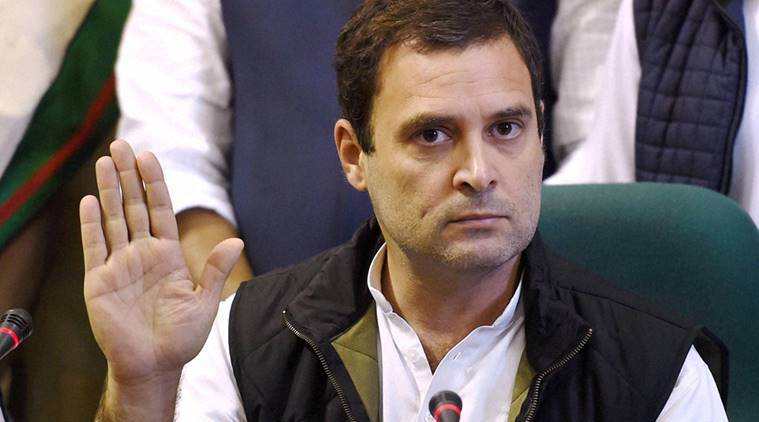
The Indian Express
Rahul in conversation with global experts: ‘India should adopt soft lockdown, pandemic to stay here until year-end’
During a conversation with Congress leader Rahul Gandhi, Prof Johan Giesecke, a member of WHO’s Strategic and Technical Advisory Group for Infectious Hazards, also said India should lift the lockdown in steps.
by Manoj C GIndia should adopt a “soft lockdown”, as severe curbs can cause more deaths than coronavirus and ruin the economy, a global health expert said on Friday, and suggested that it is better to take care of the “old and the frail” and let the others have the infection, as the disease is “very mild” and most people infected will not even be sick.
Another expert said herd immunity is a “terrible idea”, and maintained that Covid-19 is here to stay at least until the end of this year. He also argued the world is now entering “an age of pandemics” due to environmental changes and globalisation.
During a conversation with Congress leader Rahul Gandhi, Prof Johan Giesecke, a member of WHO’s Strategic and Technical Advisory Group for Infectious Hazards, also said India should lift the lockdown in steps.
In a separate conversation with Rahul, Prof Ashish Jha, faculty director at Harvard Global Health Institute, said some are suggesting that “in places like India we will just let herd immunity happen and let hundreds of millions of people get infected”.
But, Jha said, “I think that is a terrible idea…(because) it will lead to millions and millions of people dying, including a lot of young people with this condition. We have to take a strategy that tries to protect everybody, particularly older people and younger people with chronic disease.”
Across the globe, Giesecke said, almost everyone in the world will be infected by coronavirus. “But it is a very mild disease — 99 per cent people infected will have very little symptoms, or no symptoms at all. What we are seeing now is 1 per cent of the epidemic,” he said.
Stating that a severe lockdown will run India’s economy “very quickly”, Giesecke said, “I think it’s better (to) skip the lockdown, take care of the old and the frail, and let others have the infection. Most people will not even be sick. They will not even notice they have it. You may even create more deaths by a severe lockdown than the disease will do.”
Jha said the lockdown is not the goal unto itself, as it only “buys you time” to prepare a “really fabulous testing, tracing, isolation infrastructure”. He said life will be very different when lockdown ends and argued that a certain level of confidence will have to be created when the economy is reopened.
“Because the economy resides on confidence, (and) because if people are scared, they will not engage in economic activity. So you have to create some amount of confidence. It is complicated. I haven’t seen any country do it brilliantly, but everybody (all nations) is kind of making their way through this.”
Rahul said he himself is skeptical of a full lockdown. “I do think one has to move to a partial lockdown. I think the full lockdown is damaging and the damage increases exponentially. The sooner you get out of the lockdown, the better it is,” he said.
He pointed out that some states in India are doing better than the others given their nature, design and political system. “I get the sense that the more decentralised states, states that spread more power closer to the people, will do better,” the former Congress chief said.
“People say 9/11 was a new chapter. This is a new book,” he said.
At the world level, Rahul said, the disease is attacking the globalised structure. “If you look at places that are vulnerable, they are all nerve centres of globalisation…. I am convinced that you are going to have a new world after this virus; it is going to reshape Europe…. I think Europe will have a real difficulty staying together. I think the balance of power between the US and China will change.”
Jha said economic growth in India, China and other places has lifted people out of poverty but this has also led to deforestation and encroachment into animal habitat. Most new diseases, he said, “jumps from animals to humans”.
Jha said: “This virus has existed in bats but there was a small change probably in the genome, and all of a sudden it became suitable for human hosts. I think climate change is going to make many of these things worse…. (Among) other things that has happened with economic growth is that people are eating a lot more meat…if you look at the last 100 years, you will see increasing frequency of these kinds of outbreaks and…I am confident that we are going to have more global pandemics in the upcoming years and decades.”